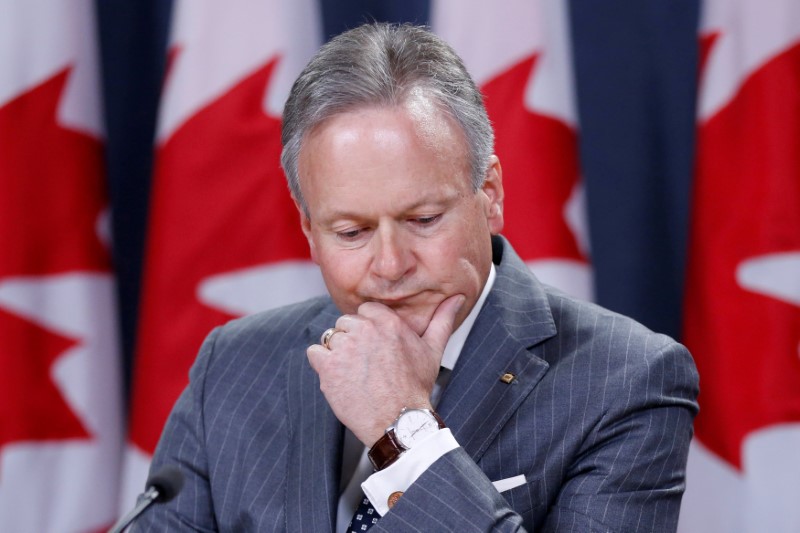
FILE PHOTO: Bank of Canada Governor Stephen Poloz takes part in a news conference in Ottawa, Ontario, Canada, July 12, 2017. REUTERS/Chris Wattie/File Photo
October 14, 2017
By David Ljunggren
WASHINGTON (Reuters) – Canadian growth will slow down in the second half of 2017 as the economy starts to approach full capacity in the wake of a prolonged oil shock, Bank of Canada Governor Stephen Poloz said on Saturday.
Poloz also said that although the economy as a whole had bounced back, there were still areas of weakness. He was speaking to reporters on the sidelines of the fall meeting of the International Monetary Fund.
The central bank raised interest rates in July and September after sitting on the sidelines for seven years and said further hikes would depend heavily on data.
Gross domestic product grew at an annualized 4.5 percent in the second quarter but recent economic releases, in particular the monthly statistics for trade, have largely been disappointing.
“There obviously will be a moderation of growth in the second half of the year … that’s what every economy does when it approaches full capacity, it slows down to its sustainable level,” said Poloz.
Asked whether he had any particular concerns about slowing growth, he replied: “Not to share with you today.” The bank is due to release its next set of economic forecasts on Oct. 25.
In July, the bank forecast that annualized quarterly economic growth would drop to 2.0 percent in the third quarter.
Poloz said that while the economy had largely recovered from the oil shock, there remained areas which needed adjustments.
“We’re still an economy with our head in the oven and our feet in the freezer. So for the people with their feet in the freezer, that doesn’t resonate with them if you say everything’s on track,” he said.
The central bank has identified a number of potential risks, including the potential for disruption if talks to renew the North American Free Trade Agreement collapse.
“The shock on the economy we would expect to be a negative one because it would cause a rethink of investment plans,” he said, adding that the bank would wait to see what happened before deciding how to react.
“We’ve got to wait and see what track we’re presented with … we don’t have a shock to analyze,” he said.
(Reporting by David Ljunggren; Editing by Andrea Ricci)

